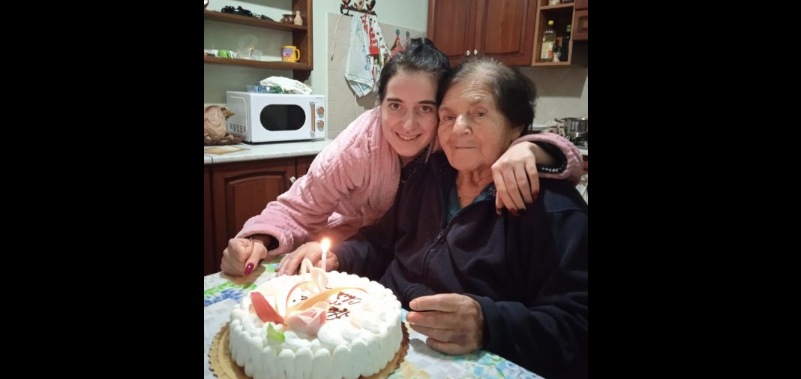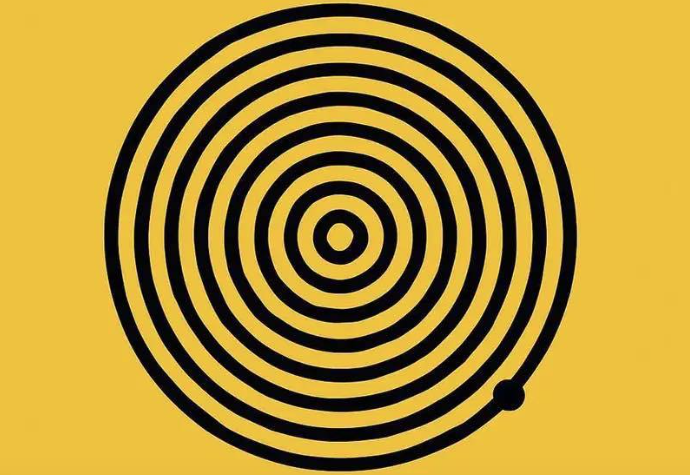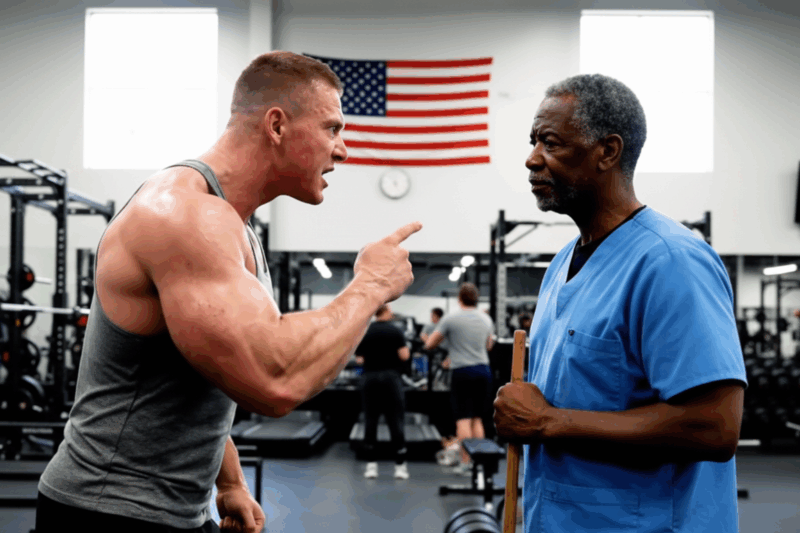A soft tap echoed on my bedroom door one evening.
“Want to bake a cake tonight?”
“For what reason?”
“It’s Mrs. Leone’s birthday tomorrow. She’s all alone.”
Those words struck deeply.
Mrs. Leone, our neighbor two houses away, always greeted us with a wave, her navy sweater a familiar sight. Our interactions never went beyond polite smiles and brief nods.
My cousin, dressed in her pink robe with her hair in a loose bun, took charge of the idea.
We crafted the cake from scratch, gathering candles and decorating it with odds and ends from the kitchen. It was far from elaborate.
As the sun sank and streetlights glowed, we carried the cake across the pavement. My cousin gripped it firmly while I juggled two mismatched balloons tied with a worn ribbon. We had no gift bag, only a card we’d written on with a blue marker.
I felt a bit foolish, like children playing at being event organizers. Yet, when my cousin pressed the doorbell, my pulse quickened.
The door creaked open. There stood Mrs. Leone.
In her navy sweater, her silver hair neatly tucked back, she blinked at us, holding our uneven cake and balloons.
“Happy birthday!” my cousin exclaimed with enthusiasm.
Mrs. Leone froze for a moment, as if the scene was unreal. Then her eyes glistened with tears. She pressed a hand to her mouth, murmuring, “You remembered.”
We didn’t admit how little we knew her. We simply stepped inside.
Her home carried a faint scent of lavender and aged books. The walls held faded photographs—black-and-white portraits, wedding moments, children by Christmas trees. The frames looked untouched for years.
We placed the cake on her modest wooden table. She fetched three mismatched plates from a cabinet, apologizing for their simplicity.
At first, the mood was stiff. The three of us sat, nibbling cake, trading small talk. But then the atmosphere softened.
Mrs. Leone shared tales of her childhood in Italy, her arrival in this country with only a suitcase, and her late husband, a tall man with gentle eyes. She spoke of dancing with him in their living room.
Her voice wavered when she mentioned her two sons, both distant—one across the country, the other overseas. She hadn’t seen them in over a decade.
My cousin and I listened in silence. A tightness grew in my chest.
When we sang “Happy Birthday,” her hands shook as she blew out the candles. “This is my first cake in years,” she said quietly.
We thought that would be the end—a warm, simple evening. But it was only the beginning.
The next morning, Mrs. Leone appeared at our door with a tray of biscotti, insisting on giving us something in return. And so, a connection formed.
She began stopping by regularly, sometimes with cookies, sometimes with stories from her past. My cousin started accompanying her to the corner store. I fixed the squeaky hinge on her front door. It became part of our routine.
Then came an unexpected turn.
Two weeks after the birthday, Mrs. Leone welcomed us into her home again. Old photo albums lay spread across her coffee table. As we turned the pages, she named faces and places. Then she paused at one image.
It showed a young girl with pigtails, standing before a school.
“That’s my granddaughter,” she whispered. “I haven’t seen her since she was five.”
The pain in her eyes was heavy. She explained that her son had cut contact after a falling-out years ago. Letters went unanswered. Calls were blocked. She no longer knew where her granddaughter was.
My cousin, ever fearless, said, “We could try to find her.”
It seemed unlikely to me. But my cousin’s resolve was unshakable. That night, she scoured the internet, combing through directories and social media. Days turned into weeks. Then, she found a matching name—a young woman living a few towns away.
We hesitated. Should we tell Mrs. Leone? Contact the granddaughter first? What if she wanted no connection?
My cousin sent a brief message: “Your grandmother misses you.” She left our names out.
Days passed with no response. Then, one arrived. The granddaughter agreed to meet, cautious but curious. She recalled her grandmother’s biscotti and wanted to hear her out.
We arranged for her to visit Mrs. Leone’s home, keeping it a surprise, like the birthday cake.
The day arrived. My cousin and I stood in the living room, nerves on edge, as the doorbell chimed. Mrs. Leone shuffled to the door, expecting perhaps us or a neighbor. But when she opened it, her eyes widened.
A young woman stood there, tall, with eyes matching the girl in the photo.
“Nonna?” she said softly.
Mrs. Leone dropped the dish in her hands. It clattered but held together. With trembling arms, she reached out, tears streaming. “Is it really you?”
They held each other, a hug that seemed to mend years of distance in an instant.
The room felt alive, as if the house itself exhaled.
They talked for hours that night—about lost time, mistakes, and the chance to begin anew.
We sat quietly, sipping tea, watching something beautiful unfold.
The granddaughter became a regular visitor, bringing flowers or stories about her work. Mrs. Leone radiated a new warmth, baking more, humming in her kitchen, even trading her navy sweater for bright scarves.
But life brings its shifts.
One afternoon on her porch, Mrs. Leone sighed and said, “My time is growing short.”
We brushed it off with a laugh, but her tone was earnest. She spoke of leaving a legacy—not of wealth or objects, but of kindness. She handed my cousin a small wooden box.
Inside were handwritten letters, each addressed to someone in the neighborhood—shopkeepers, mail carriers, children who once played on her lawn. She asked us to deliver them when the time came.
Her thoughtfulness shook me. She wasn’t focused on herself but on others.
Then came another surprise.
One cold evening, her estranged son appeared at her door. We didn’t know how he’d learned of her. Perhaps the granddaughter had reached out. He stood there, clutching a modest bouquet of grocery store flowers.
“I thought I’d visit,” he mumbled.
The air grew still. Mrs. Leone looked at him, her expression unreadable. I thought she might close the door. Instead, she opened it wider.
“Come in,” she said calmly.
Their reunion was not simple. Tears fell, voices rose, and apologies took time. But slowly, healing began.
Weeks later, Mrs. Leone seemed lighter, as if a weight had lifted. She often said the birthday cake had sparked it all. “That little cake,” she’d say with a smile, “changed everything.”
Then, one morning, she didn’t answer her door. We found her resting peacefully in her chair, letters still nearby.
The loss stung deeply. But as we delivered her letters, something extraordinary emerged.
Neighbors shared stories we hadn’t known. How she’d given them bread during lean times. How she’d quietly paid for a child’s school shoes. How she left flowers on the church steps, unnoticed.
She had touched countless lives, quietly and humbly.
At her memorial, her granddaughter stood and said, “It began with two neighbors bringing a cake.” She looked at us, tears falling. “You gave her back to us.”
Those words stayed with me.
Sometimes, it’s not grand acts that transform lives. It’s a knock on a door, a homemade cake, a moment of care.
Mrs. Leone showed us that broken bonds can mend, hearts can heal, and kindness can ripple far beyond our sight.
Each year, on her birthday, we bake a cake—simple, imperfect, filled with love.
Because even the smallest light can brighten the deepest darkness.
If this story moved you, share it with someone who might need its warmth. And don’t forget to like it—kindness grows when we spread it.




